Life
Sign up for our newsletter
We summarize the week's scientific breakthroughs every Thursday.
-

-
 Animals
AnimalsMalaria parasite drives mosquitoes to human scent
Compared to uninfected insects, ones carrying disease land more often on sweat-soaked stockings.
-
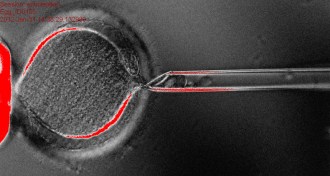 Life
LifeCloning produces human embryonic stem cells
Fine-tuning of technique used in other animals could enable personalized medicine.
By Meghan Rosen -
 Animals
AnimalsTamed fox shows domestication’s effects on the brain
Gene activity changes accompany doglike behavior in foxes bred over more than 50 years.
-
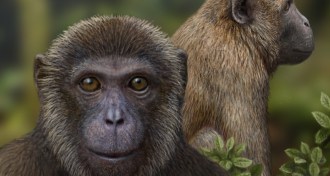 Life
LifeFossils point to ancient ape-monkey split
Apes and monkeys split from a common ancestor more than 25 million years ago, fossil finds suggest.
By Bruce Bower -
 Life
LifeBody’s clock linked to depression
Gene activity in the brain suggests that circadian rhythms are off-kilter in people with depression.
-
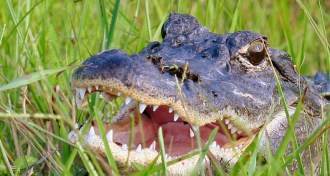 Animals
AnimalsThe secret behind the alligator’s toothy smile
Dental stem cells enable the reptile to grow new teeth every year, researchers find.
By Meghan Rosen -
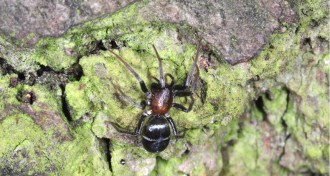 Animals
AnimalsCannibalistic spiders may just be choosy guys
Male Micaria sociabilis may choose to have older female for lunch, not sex.
By Susan Milius -
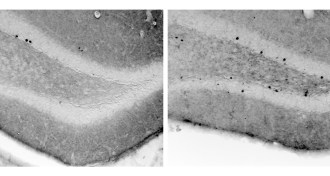 Life
LifeExploration forges differences in identical twins
Mice with the same genes and surroundings diverged in brain development depending on how much they moved around their environment.
-
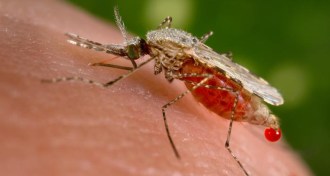 Animals
AnimalsMalaria mosquito dosed with disease-fighting bacteria
After thousands of tries, lab gets parasite-carrying insect to catch Wolbachia.
By Susan Milius -
 Life
LifeGut bacteria adapt to life in bladder
E. coli moving between systems may cause urinary tract infections.
By Meghan Rosen -
 Humans
HumansEurope is one big family
Continent's ancestry merges about 30 generations ago, genetic study finds
By Meghan Rosen